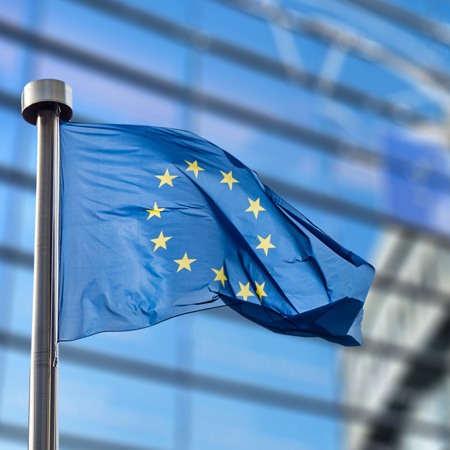
7 september 2017
EU - Japan Economic Partnership Agreement
On Thursday 7 July 2017, at the EU-Japan Summit a political agreement on the main principles of the EU-Japan Economic Partnership Agreement ("EPA") was announced. Agreement was reached on, amongst other things; (i) elimination of customs duties paid by EU companies, (ii) opening of the Japanese market to key EU agricultural and food exports and (iii) addressing non-tariff barriers for products like motor vehicles, medical devices, textiles and beer. The EPA sets the standards for labour, safety, environmental and consumer protection, including the protection of personal data. It safeguards public services and has a special chapter on sustainable development. The agreement also addresses the services markets, in particular financial services, e-commerce, telecommunications and transport. The political agreement in principle covers most aspects of the EPA, which is not finalised yet. Some technical details still need to be worked out, and there are also chapters, for instance on investment protection, that remain outside the scope of the agreement. Other areas that require further work include regulatory cooperation and the general and institutional chapters. Completion is expected by mid-2018 and the entry into force of the EPA in early 2019.
Read more
European Parliament on tackling trade dumping
On 5 July 2017 the European Parliament gave the green light to start talks with Member States on new EU anti-dumping rules designed to better protect EU industry and jobs. These negotiations are carried out in the legislative process of the proposal for a regulation for targeted changes to the EU anti-dumping and anti-subsidy regulations. The proposal is a response to the expiry of parts of China's WTO accession protocol in December 2016 and to unfair trade practices from third countries. This raised the question of whether WTO members can treat China as a non-market economy and calculate anti-dumping measures accordingly. The new rules would use the same methodology for all WTO members, regardless of whether they have market economy status, but will target countries where “significant market distortion” exists. The EP negotiating mandate includes the following key points:
•Anti-dumping investigations need to take into account the exporting country’s compliance with international labour, fiscal and environmental standards, potential discriminatory measures against foreign investments, effective company law, property rights and the tax and bankruptcy regimes.
•The EU Commission must issue a detailed report describing the specific situation in a certain country or sector for which the calculation of duties will be applied.
•There should be no additional burden of proof on EU companies in anti-dumping cases, on top of the current procedure to be followed when asking the Commission to launch an investigation.
Read more (we recommend to use Google Chrome for this website)
CJEU: No prior authorisation for online games
On 22 June 2017, the Court of Justice of the European Union ("CJEU") decided in the case of online games provider Unibet. The Maltese company offered its services in several EU Member States, Hungary being one of them. Under Hungarian law, operators of games of chance were required, in order to be deemed ‘trustworthy’, to demonstrate that they had, for a period of at least 10 years, carried out an activity involving the organisation of games of chance in Hungary. Unibet did not have such a licence, and the Hungarian authorities blocked access to Unibet's site and imposed a fine. The national court, before which Unibet took action, asked the CJEU whether the Hungarian legislation at issue is compatible with the principle of the freedom to provide services. The CJEU decided that the 10-year requirement in order to obtain a licence constituted a difference in treatment because it placed operators of games of chance established in other Member States at a disadvantage in comparison with national operators, who could more easily meet the requirement. For that reason, the Court ruled that the legislation being challenged was discriminatory and, therefore, contrary to the principle of the freedom to provide services.
Read more
European Parliament report on services and establishment post-Brexit
On 22 June 2017, the European Parliament published an in-depth report on the challenges Brexit will pose to the future of trade in services between the EU and the UK. It discusses the specific barriers to crossborder establishment and trade in services and possible solutions for a future EU-UK trade agreement. In doing so it takes existing EU Free Trade Agreements with other states into consideration. The main challenges for a future EU-UK Trade Agreement are considered to be: (1) finding a common standard setting mechanism; (2) agreeing on mutual recognition; (3) agreeing on effective enforcement mechanisms; and (4) clarifying the rights of persons which have made use of their right of establishment in the past.
Read more
The Future of EU finances
On 28 June 2017, the European Commission published its reflection paper on the Future of the EU finances post-Brexit. The reflection paper looks at this challenge and identifies the key elements for discussion, structured around the five scenarios of the White Paper: (i) will the EU simply carry on, (ii) do less together, (iii) move ahead at different levels of intensity, (iv) do less but more efficiently or (v) do much more together. Each of these illustrative scenarios would have different consequences - in terms of how much to spend for what purpose, and where the money could come from. Options range from reducing spending for existing policies to increasing revenues. In addition, the reflection paper sets out the basic features of the EU budget and charts the principal trends and developments in key policy areas like cohesion or agriculture. It also addresses overarching issues like the added value of EU funding or the articulation between EU funding and structural reforms in Member States.
Read more
The Houthoff Buruma EU team is also available at eu-office@houthoff.com or +32 (0)2 507 98 00.



